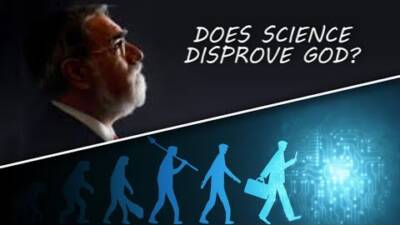Share
Rabbi Sacks answers this question by eloquently explaining the five important strands of what it means to be a Jewish leader.
Jewish leadership is one of those phrases that you probably don't need, because to be a Jew is to lead, that's what we're called on to do in life. And if you look at the last century or two, Jews have in fact led in one field after another. It's very hard to find a field where they haven't, whether it's Einstein in physics or Levi Strauss in anthropology or Durkheim in sociology, or Freud in psychoanalysis, or Viktor Frankl and Aaron Beck and Martin Seligman in psychotherapy. Or classical music, Mahler and Schoenberg, classic musical music, George Gershwin and Irving Berlin, all the way down to Leonard Cohen and Bob Dylan, and that's as far as I'm prepared to go, given my extreme old age.
You name it, we've pioneered, because to be a Jew is to be out there in front. We are, I think, the pioneers of the human spirit. So, what is it that makes Jewish leadership 'Jewish', as opposed to just any other kind of leadership? I think a number of things.
Number one: First and foremost, Jewish leadership is vision-driven. It was a vision of leading a people from slavery to freedom that Moses encountered at the Burning Bush. It was a vision of Jerusalem at the centre of the Jewish State, and as the home of the Temple that inspired King David to his greatest achievements. And of course the Prophets were the great visionaries of all time. Amos, Hosea, Isaiah, Jeremiah, those people burning with a passion for social justice. The world's first social critics.
Number two: Jewish leadership has to be service. In Judaism it is the leader who serves the people, not the people who serve the leader. That's why the Torah calls Moses "the most humble of men." In fact, you can actually see this symbolically. If you look at Mesopotamian ziggurats and Egyptian pyramids, they're broad at the base, and narrow at the top, representing a hierarchical society with one person, the king or the pharaoh, at the top. Whereas the Jewish symbol, a menorah, is exactly the opposite. It is broad at the top, and narrow at the bottom, because at the bottom there is the leader, serving and supporting the people.
So I think you've got to realise that in Judaism, leadership is not an ego trip. In fact, if you have an ego when you begin, you will have, if you'll forgive the pun, a "scrambled egg-o" by the time you end. So be aware, it's got to be done in humility, as service.
Number three: Jewish leadership is empowering. It really is bringing other people along with you. You know we say "The Lord is my Shepherd," but no Jew is ever a sheep. Don't tell the Jewish people where to go, because they're not going to listen to you. And that means you have to empower them.
Moses, through the Hand of God, did miracle after miracle for the Jewish people, bringing them out of Egypt, and each time the people just complained and rebelled. It was when he empowered them - he said: Help build a home for God, help build a Sanctuary - it was then that they stopped arguing and started cohering as a people. So, you have to empower people.
Number four: It seems to me that Judaism is pretty unique among world faiths, because most other religions in the world, then and now, are essentially religions of acceptance, of consolation, of putting up with the way things are. Whereas Judaism has always been a religion of protest. We have always been conscious of the gap between the world that it, and the world that ought to be. That's why you find Jews, out of all proportion to our numbers, as doctors fighting disease, or economists and businessmen fighting poverty, or lawyers fighting injustice, or academics and teachers fighting ignorance, or therapists fighting depression and despair. To be a Jewish leader is to change the world because you feel that the world is not as it should be.
And number five, a Jewish leader has to be an agent of hope. Even the most pessimistic of prophets, Jeremiah, was a prophet of hope. I once said, the Greeks gave the world tragedy and the Jews gave the world hope.
I think we are the voice of hope in the conversation of humankind. We have survived the worst that anyone could throw at us. We have built, in the land of Israel, in the State of Israel, one of the great, great countries of the modern world, a country that has faced difficulties in every direction and has somehow surmounted them all and continues to pioneer and celebrate life.
So go out there and lead. Go out there and lead as Jews. Because the world right now needs our values. We need to show that you can have strong religious faith and yet not be a fanatic. The world needs to know that a religion can be very self-confident and yet not try to convert and conquer the world. We never tried to convert anyone. Anyone that wants to convert, you're welcome but we never tried to dominate anyone else. So, one way or another the world needs a Jewish presence right now. So that is the challenge you face, and you're going to meet it with great distinction. I also think you will meet it with a great sense of fulfilment as well, because leadership is not only important because of what we achieve through it. It's important because of what we become by exercising it. Lifting others, we find that we ourselves are lifted.
So, go out there and lead. And please take my blessing with you, because you are very special people, and I salute you now, and even more for what you're going to do to change the world for the better in the years to come. Thank you.
In partnership with TorahCafe (www.torahcafe.com), Rabbi Lord Jonathan Sacks recorded a series of short videos in May 2013, in answer to some of the most frequently asked questions of Judaism (and faith in general).
More FAQs

What was the Rambam controversy?
Question 13

Would the world be better without any religion?
Question 11

What is a Rabbi?
Question 10

Why do bad things happen to good people?
Question 9

What do Jews believe about the afterlife?
Question 8

What's the purpose of life?
Question 7

What does the term ‘Chosen People’ mean?
Question 6

If you could ask God one question, what would you ask?
Question 5

How can the belief in God be reconciled with science, especially evolution?
Question 4

How can the Torah be trusted?
Question 3

How do you know there is a God?
Question 2

What are the basic beliefs in Judaism?
Question One
